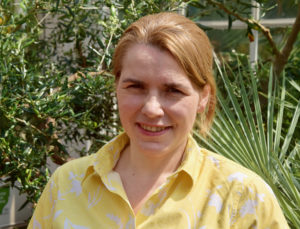Digital health suppliers can make a difference to sustainability now
Written by: Ewa Truchanowicz - 10th November 2021

In this blog, Ewa Truchanowicz, reflects on what Dignio has been doing to help deliver greener care.
World leaders gathered in Glasgow this week for COP26 – a meeting described as the last chance to act to save the planet.
Global commitment to sustainability is certainly more crucial than ever, but a delegate pass to the UN Climate Change Conference isn’t mandatory to make a difference.
I’m glad to be part of a community in the digital health sector committed to supporting change and delivering impact now.
Propel@YH Net Zero is a sustainable health accelerator pilot programme created by Yorkshire & Humber Academic Health Science Network. Its goal is to help introduce innovations that can support the drive for the NHS to become the world’s first net zero national health service.
We were one of the companies selected to join the programme. The AHSN has helped us start thinking about which clinical impacts could have an environmental impact. They’ve also introduced us and helped to facilitate conversations with national bodies such as NHSD and the Greener NHS team and they shared carbon calculators to help us quantify our benefits. We’ve also linked in with the AHSN’s comms team to discuss how we can best communicate our impacts and helped us to understand what our stakeholders are looking for when they are introduced to new innovations.
In my role as the managing director for Dignio in the UK, I see our involvement in the accelerator as an opportunity to collaborate as part of a network of suppliers, with a shared interest. We are part of a solution.
Dignio’s focus as a company is on remote care. We provide easy-to-use technology so that patients can be safely monitored in their homes by healthcare professionals. Organisations we are working with are delivering significant impact through remote care pathways we are helping them to develop. This includes very substantial reductions in hospital admissions and millions of pounds saved for health economies. And on an individual level, many vulnerable or at-risk patients are retaining their independence, whilst feeling safe knowing their care teams can intervene quickly if alerted.
Changing models of care in this way can be better both for patients and for a health service under immense pressure. But it is also significant for the environment.
We have an opportunity to utilise the full potential of technology to deliver care in a greener, more sustainable way. We need to act now to stop unnecessary transport of patients and staff and to reduce the need for logistical supply to big buildings.
The reasons and urgency for doing this from a global sustainability point of view are obvious. But there are also direct health reasons to reduce carbon footprint.
I have an asthmatic child, and I can map road traffic increases to her symptoms. This is at a time when it is believed around 5% of road traffic and carbon emissions in the UK are attributable to the NHS.
If we are to prevent future generations of children in primary schools from relying on inhalers and having ambulance call-outs, now is the time to think differently. We know something can be done, and it is time to get serious. We need to apply innovations in ways that reduce carbon miles, to look at care models and supply chains more holistically, and enable commissioners and providers in healthcare to drive forward sustainable methods of care delivery that are not more expensive and that don’t compromise quality and safety.
This is something happening now – and we are actively and continually working with our customers to measure and better understand in detail what works more effectively.
This is something we all breathe.
